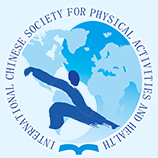Document Type
Article
Keywords
social cognitive theory, teaching strategies, qualitative research, self-efficacy, physical education
Publication Date
9-3-2024
Abstract
Research examining physical activity (PA) is significant because of the known benefits of PA. Studying high school (HS) students is particularly important due to the consistent decline in PA as students age. One strategy to increase PA is to increase someone’s self-efficacy (confidence) to be physically active which is commonly positively associated with PA. Most of the research on how to support physical activity self-efficacy (PASE) comes from outside-of-school interventions with minimal literature on how to support students’ PASE within HS physical education (PE). This study attempted to identify and share practices that current HS PE teachers were implementing to support students’ PASE and further develop previous recommendations to support PASE. The study participants were 14 current HS PE teachers that participated in one individual semi-structured interview that lasted approximately 50-60 minutes. Interview questions were designed to ask participants about their daily in-person class routines and how they support PASE based on the four sources of self-efficacy. The results include three themes to assist in supporting HS students’ PASE which include: (a) Maximizing initial success, (b) Redefining success, and (c) Increasing PA awareness and monitoring. All themes and examples coincide with previous recommendations on how best to support PASE. PE teachers have the opportunity to design PA experiences that maximize the chances of students interpreting their experiences as successful and allow students to manage their PA participation. Implementing these types of strategies can hopefully increase students’ overall participation in PA by supporting their PASE.
DOI
https://doi.org/10.18122/ijpah.3.2.8.boisestate
Recommended Citation
Murfay, Ken; Beighle, Aaron; Erwin, Heather; Aiello, Erin; and Pyszczynski, Sarah
(2024)
"Supporting Students’ Physical Activity Self-Efficacy within High School Physical Education,"
International Journal of Physical Activity and Health: Vol. 3:
Iss.
2, Article 8.
DOI: https://doi.org/10.18122/ijpah.3.2.8.boisestate
Available at:
https://scholarworks.boisestate.edu/ijpah/vol3/iss2/8
Included in
Exercise Science Commons, Health and Physical Education Commons, Public Health Commons, Sports Studies Commons


